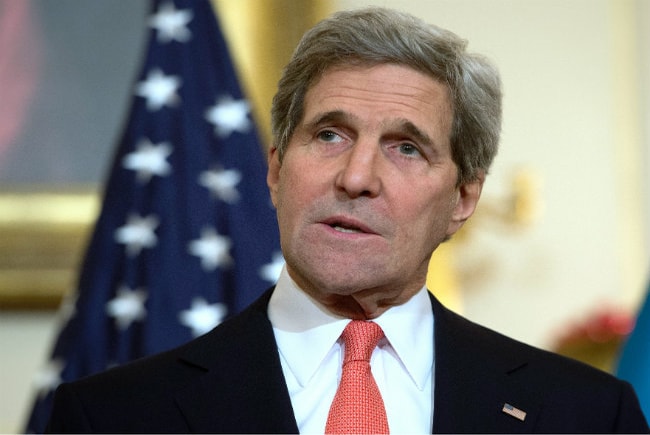
US Secretary of State John Kerry on Tuesday appeared to take a swipe at Israeli Prime Minister Benjamin Netanyahu, saying critics of an emerging nuclear deal with Iran did not know what they were talking about.
Kerry told a US Senate subcommittee that he also expected to know soon whether Iran was willing to craft an "acceptable, verifiable" plan that would satisfy major powers that it is not seeking to develop a nuclear weapon.
Netanyahu, who is scheduled to make a speech before a joint session of Congress on March 3, has described the agreement under negotiation with Iran as a "bad deal," and said he would do what he could to prevent it.
"Anybody running around right now jumping in to say, 'Well we don't like the deal,' or this or that, doesn't know what the deal is. There is no deal yet," Kerry told Senators at a hearing on the State Department's budget. "And I caution people to wait and see what these negotiations produce."
It was the second time in recent days in which the Obama administration, irked that Netanyahu's speech to the Republican-led Congress was scheduled initially without its knowledge, appeared to criticise Israel over Iran.
Last Wednesday, the White House accused Israel of distorting its position in the nuclear talks through selective leaks, heightening tensions before Netanyahu's visit to Congress.
The six major powers negotiating with Iran have set the end of March as a deadline to reach a framework accord on the nuclear issue. The United States and Britain, China, France, Germany and Russia hope to secure an accord to restrain Iran's nuclear programme in exchange for sanctions relief. Washington suspects Iran may be trying to develop nuclear weapons. Iran, however, has said its programme is for peaceful purposes.
Kerry said he expected to leave Saturday to meet Russian Foreign Minister Sergei Lavrov about Syria, attend a UN Human Rights Council gathering and also hold nuclear negotiations with Iran. He did not say where those meetings would take place.
The chief US diplomat also raised the possibility that members of the Syrian opposition or the Islamic State group might have used chlorine, which is not defined as a chemical weapon but can be toxic depending on how it is treated.
"The bulk of their use has been by the (Syrian) regime but it is not exclusive. It appears as if there has been some by the opposition or by ISIS," Kerry said, using another acronym for the Islamic State group.
Track Latest News Live on NDTV.com and get news updates from India and around the world

